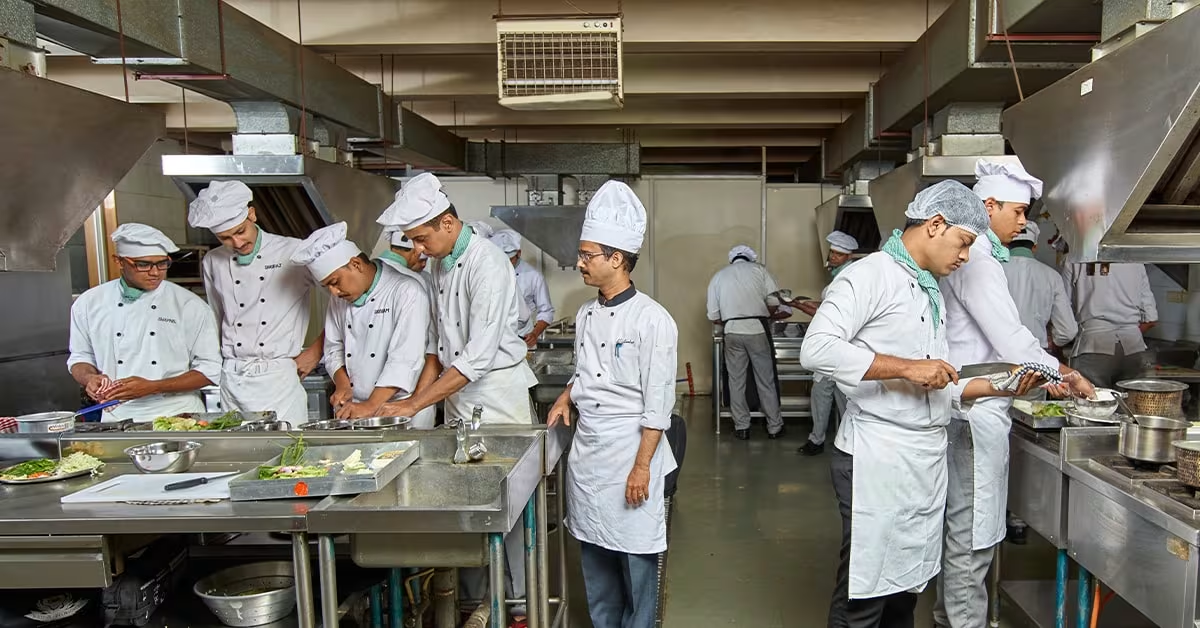We keep telling students to get 'real-world experience', but how real is it, really?
I've read hundreds of internship reflections from hospitality students over the years. The good ones glow with genuine learning. The bad ones? They usually mention folding napkins, shadowing check-ins, and watching experienced staff do the actual work. That’s not a placement, that’s passive observation.
The disconnect between hospitality education and what the travel industry truly demands is growing harder to ignore. And it’s not about blame. It’s about rethinking how we work together. Because right now, the model many of us are working with is outdated. And that’s putting pressure on both sides.
What students want now
Today’s hospitality students aren’t just looking for a stepping stone. They want relevance, purpose and room to explore. They’re digital natives who expect systems to be fast, service to be intuitive, and businesses to reflect the world they live in, inclusive, ethical and aware.
They’re also more entrepreneurial. Some are launching side hustles before they even graduate. Many are questioning legacy career paths that expect long hours and low pay for slow progression. In short, they want more and that’s not a bad thing.
Where the current model falls short
Many hospitality placements still function like they did ten or twenty years ago. Students arrive, shadow, and get rotated around departments. Sometimes they’re welcomed and included; sometimes they’re treated as temporary extra hands. Often, the experience depends on who their supervisor is, or how busy the season gets.
Some institutions are actively working to change this. For instance, Glion integrates professional placements into their courses as a core part of the learning journey, helping students apply theory in real-world settings and build the confidence and adaptability the industry demands.
What’s missing is structure, intention and mutual investment. A placement should feel like a project with goals, learning outcomes, and a sense of contribution. Too often, it feels like a one-way street: students doing their time, ticking the box, and moving on without adding real value or gaining deeper insight.
The risk for industry
The irony is, the industry can’t afford this model either. Hospitality is facing a talent crisis. According to a WTTC report, global travel and tourism could face a shortage of 3.3 million workers by 2033. Attracting skilled, committed people should be a priority. But students who have lacklustre placements are more likely to leave the industry altogether.
Add to that the growing complexity of hospitality roles with tech, sustainability and guest personalisation driving new demands and it becomes clear: we need graduates who can think, adapt, and lead. That requires more than a few weeks shadowing housekeeping.
Meanwhile, the global luxury hospitality market is thriving is expected to reach $166.41 billion by the end end of this year and surpass $218 billion by 2029. With a compound annual growth rate (CAGR) of 11.5% projected until 2032, the sector promises attractive opportunities for investors and professionals alike.
So, what does good collaboration look like?
It starts with genuine partnership. Not just taking students on, but co-creating meaningful experiences with them. Here are a few approaches that are making a difference:
- Embedded brand projects: Some hotels and travel brands are working directly with academic institutions to build real-world business projects into the curriculum. Students might help redesign an in-room experience, audit sustainability processes, or pitch tech-based service enhancements. Everyone learns something.
- Shared innovation labs: These are spaces (physical or virtual) where students, faculty, and industry teams collaborate on challenges. Think design thinking sprints or cross-functional workshops focused on improving loyalty schemes or exploring automation use cases.
- Reverse mentoring: Industry leaders invite students to share their views on emerging guest trends, digital behaviour, and social values. It’s a two-way learning process, and helps bridge the generational gap in thinking.
- Startup collaboration: Some brands partner with student-led startups or accelerators to inject fresh thinking into their business. This encourages entrepreneurship and helps students see hospitality as a space for innovation, not just operations.
What's in it for employers?
Plenty. For one, it’s a pipeline of potential hires who already understand your culture and values. It also boosts your employer brand. Gen Z cares deeply about how companies treat their people and that includes interns. A smart, structured student programme can set you apart.
It also brings in fresh eyes. Students aren’t stuck in the ‘we’ve always done it this way’ mindset. They ask questions, spot inefficiencies, and often suggest ideas others miss.
Rethinking the 'intern' label
One quick win? Stop calling them interns. Interns make coffee. Emerging professionals contribute. The language matters.
Think of them as junior consultants. Let them present ideas. Give them feedback like you would a colleague. Invite them to leadership meetings. The more you treat them like professionals, the more likely they are to become ones.
Final thought: co-creation, not handover
Education and industry aren’t on opposite sides of the hospitality fence. We’re building the same house. But if we only talk during handovers, we’re missing a huge opportunity.
Let’s not wait until students graduate to introduce them to real-world hospitality. Let’s invite them in now, as active collaborators. Let’s give them space to contribute, challenge, and create.
Because the future of hospitality isn’t something we hand to them, it’s something we build with them.



